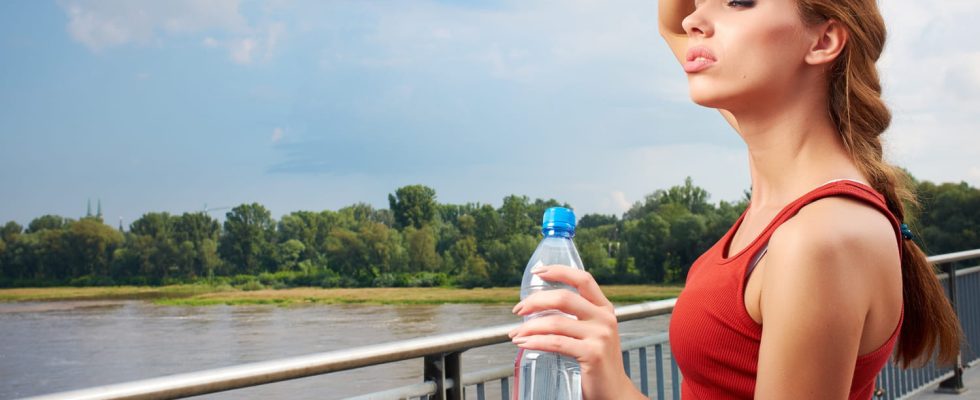Heat has effects on the cardiovascular system and can lead to an increase or decrease in blood pressure, depending on the case. Causes and symptoms to spot.
The heart is a muscular organ whose function is similar to that of a pump. It receives oxygen-rich blood in order to distribute it to the organs and cells through the blood vessels (arteries and veins). The heart contracts to pump blood to the arteries. Blood exerts pressure on the arterial walls, it is blood pressure or blood pressure. When we measure blood pressure, two types of pressures are assessed: systolic pressure and diastolic pressure. The systolic pressure corresponds to the moment when the contraction of the heart is at its maximum. Diastolic pressure is recorded when the myocardium is at rest between two heartbeats. The reference value for systolic pressure is on average at 140 mmHg while those for diastolic pressure is at 90 mmHg. When blood pressure is above 14/9, it is mild hypertension. Blood pressure varies according to several characteristics, such as sex, age, the physiological state of the person or even sudden variations in ambient temperature.
Heat increases blood pressure: true
“The outside temperature affects blood pressure, indicates Doctor Jean-Pierre Mercier, general practitioner. Faced with heat, the body defends itself, as evidenced by the sweat. The body draws on its reserves, which increases blood pressure and the pulse, which can go between 90 and 120 beats per minute. Moreover, hot nights and disturbed sleep are also two elements that tend to raise blood pressure. People with hypertension must therefore be particularly vigilant. against the heat. Also, they must avoid large temperature variations.
► Good to know : jumping into cold water when it is very hot causes vasoconstriction of blood vessels. Blood pressure rises sharply may cause discomfort or thermal shock. When swimming, it is imperative to gradually wet your body to avoid stressing the body.
You should never wait until you are thirsty to drink water
Heat Lowers Blood Pressure: True
When it is hot, the body temperature also rises. To regulate body temperature, the heart works. Vessels (veins, arteries and capillaries) dilate, in response to increased oxygen and nutrient needs. Therefore, the low blood pressure : the pressure exerted by the blood on the arterial walls is less strong. However, when the vessels return to their normal size, the blood pressure may rise again.
“The problem is that we often don’t feel the heat coming, especially by the sea. We feel protected by the wind. It is therefore essential to always protect yourself, especially by drinking plenty of water, says the doctor. Hydration is extremely important. To avoid dehydration, I always give my patients a tip: prepare a small bottle of water next to your bed and drink it before getting up. It is an excellent reflex that protects against dehydration, which is potentially serious in the youngest and the oldest. You must not never wait to be thirsty to drink water, thirst is already a sign of dehydration. Drinking water in the morning gradually hydrates the organs. Drinking water at the beach, when you are thirsty or when you are very hot will not protect you from dehydration“, explains Doctor Mercier.
Thanks to doctor Jean-Pierre Mercier, general practitioner.
